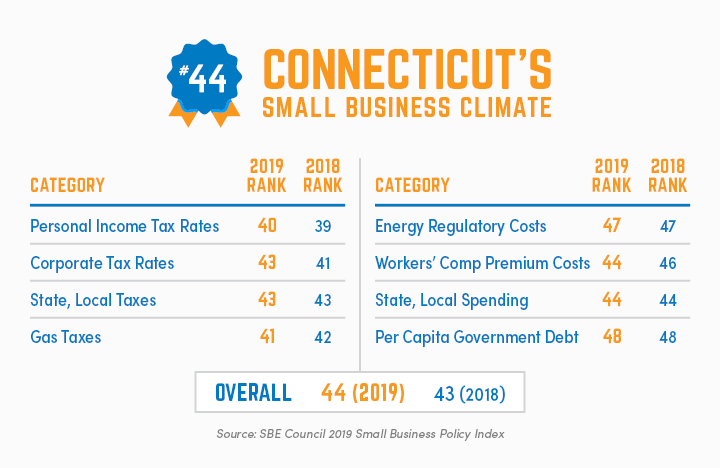Budget Deal Includes Small Business Tax Hike

The two-year state budget deal between legislative Democrats and Gov. Ned Lamont includes a $53 million tax hike on most Connecticut small businesses.
That hike is linked to the 6.99% pass-through entity tax the legislature adopted last year.

The pass-through tax was offset with a matching income tax credit designed to mitigate new federal caps on state and local tax deductions.
However, that program—meant to support Connecticut small businesses—is now being used as a new source of revenue to help fund ever-increasing state spending.
Democrat leaders and the governor announced the budget deal late Thursday.
While full budget details have yet to be released, the plan reportedly cuts the income tax credit to just 87% of a company’s pass-through entity tax payments.
‘Erodes Trust’
It’s an alarming scenario for small businesses, and one that CBIA president and CEO Joe Brennan said does nothing to increase confidence in the state legislature.
“This directly impacts Connecticut’s small businesses, the engine of the state’s economy,” Brennan said.
“It is a last minute change that had no public hearing and no opportunity for small businesses to speak out.
“Small businesses accepted last year’s workaround based on trust and this move really erodes that trust.”
Meant to support small businesses, the tax program is now being used to fund ever-increasing state spending.
Brennan said cutting the tax credit “hurts thousands of small businesses, from mom-and-pop stores to small manufacturers, medical practices, and restaurants.”
“The last thing we should be doing is adding to the cost of running a business, especially a small business, in Connecticut,” he said.
He noted that a number of measures disproportionately targeted small businesses this legislative session—including the minimum wage hike and paid family and medical leave.
The budget deal also extends the “temporary” 10% corporation surcharge tax, expected to generate $60 million in fiscal 2020 and $37.5 million the following year.
Revenue Increases
Democratic lawmakers and the governor negotiated the two-year budget deal, which must close a projected $3.7 billion deficit.
The governor presented lawmakers with a $43.1 billion plan earlier this year that relied heavily on revenue increases.
The legislature’s Appropriations Committee approved a $43.3 billion spending package on a 32-17 party-line vote April 29.
The Finance, Revenue, and Bonding Committee then voted 29-21 to increase taxes by $1.01 billion in fiscal 2020 and by $1.33 billion the following year.
The budget deal reportedly includes expanding the sales tax to include additional products and services; using this year’s surplus to refinance the teachers’ pension fund and settle a lawsuit with the hospital industry; an estimated $185 million in state employee healthcare savings; and raising Medicaid eligibility limits.
Bipartisan Concerns
Elements of the budget deal, particularly the small business tax hike, drew bipartisan concerns from state lawmakers.
Rep. Vincent Candelora (R-Branford) said he was opposed to cutting the pass-through tax credit and raising taxes on small businesses.
“If they think pulling $50 million out of the private sector is a good idea for job growth, they’re nuts,” he told the Hartford Courant.
“We’re going to increase costs to run businesses, and then we’re going to tax them more.”
“I can’t support it. It’s more of the same—piling on our small businesses.”
State Rep. John Hampton
Rep. John Hampton (D-Simsbury) also said he was opposed to the budget’s treatment of the pass-through entity tax and the overall increase in state government spending.
“I can’t support it. It’s more of the same—piling on our small businesses,” he said.
“I don’t know why we can’t learn our lesson. It’s increased spending and new spending.”
The legislative session ends June 5.
For more information, contact CBIA’s Eric Gjede (860.480.1784) | @egjede
RELATED
EXPLORE BY CATEGORY
Stay Connected with CBIA News Digests
The latest news and information delivered directly to your inbox.


